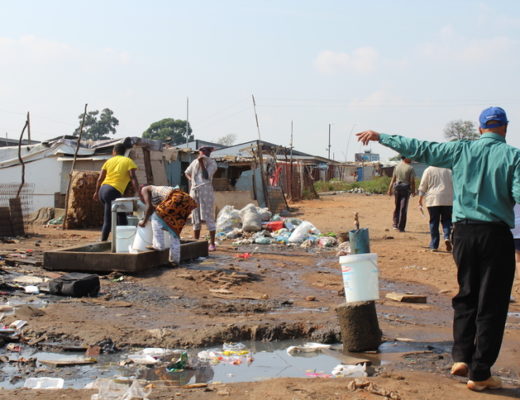Residents of Riverlea, Johannesburg, want the Zamimpilo informal settlement to be removed. [Picture: Soweto Urban]
Amid heightened police presence aimed at curbing illegal mining in Riverlea, south of Johannesburg, residents want yet further intervention. They want an informal settlement to be removed from the area.
Speaking in an interview on Salaamedia, community activist and former ward councillor Fuad Erentzen said the Riverlea community would not rest until the Zamimpilo informal settlement was removed.
“If Zamimpilo is not removed, we’re going to continue the fight. We’re going to continue holding those departments accountable,” he vowed.
The community has of late been at unease over deadly altercations between rival zama zama gangs operating at disused mines in the area. They are worried this puts their lives at risk as they are caught in the crossfire.
SMread: ‘Not pro-Russia or anti-West,’ says Naledi Pandor ahead of BRICS Summit
Rehabilitation
According to Erentzen, the plot of land on which Zamimpilo exists was initially earmarked for Muslim and Christian graveyards. He hoped the removal of the informal settlement, home to no less than 1900 households, would allow the land to be used for that purpose.
“We want that whole land and we want City Parks to take charge and monitor that those sites are rehabilitated with respect to how City Parks wants it. If City Parks does not have any plans for the graveyards to continue, the community should be able to utilise it,” he said.
On Sunday, an anti-illegal mining raid led by Johannesburg Public Safety MMC Mgcini Tshwaku saw JMPD demolish shacks in the area. “All the shacks that were empty and no one was there, we demolished them,” said the MMC.
Informal settlements continue to spring up in urban areas as an influx of migrants move to South Africa’s buckling cities seeking employment. For example, between 2002 and 2016, informal settlements increased from 300 to 2225 nationwide. By 2020, there were an estimated 3200 such settlements as municipalities failed to deliver proper housing.
